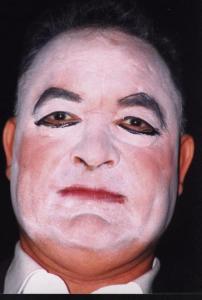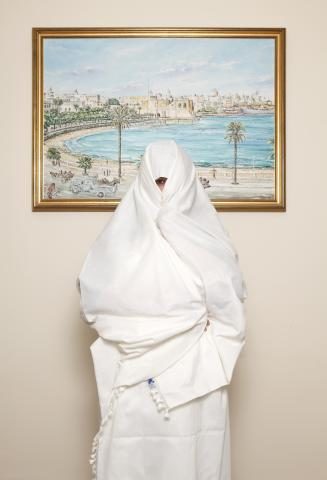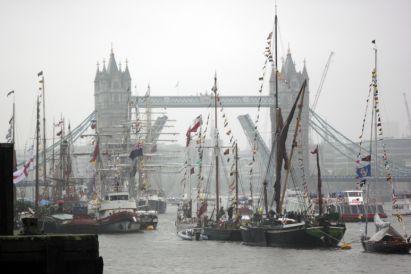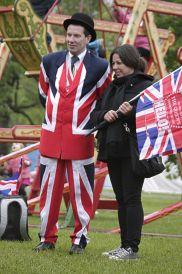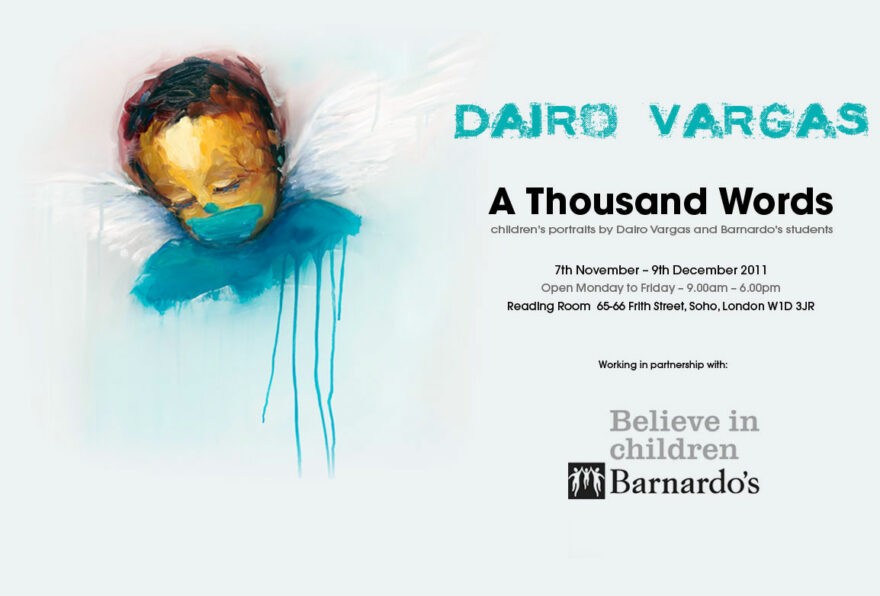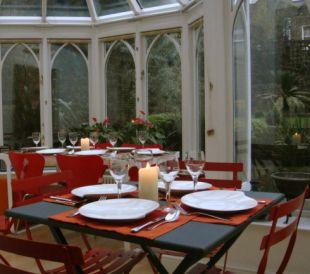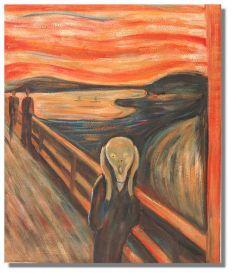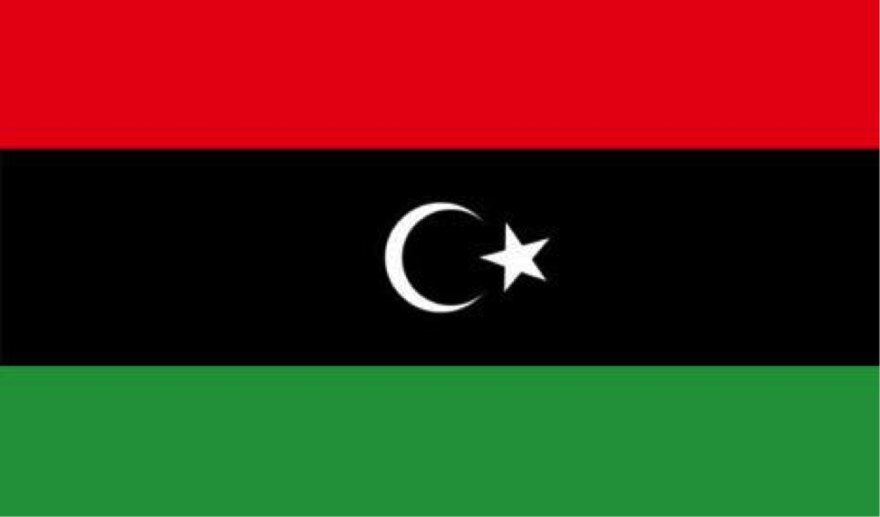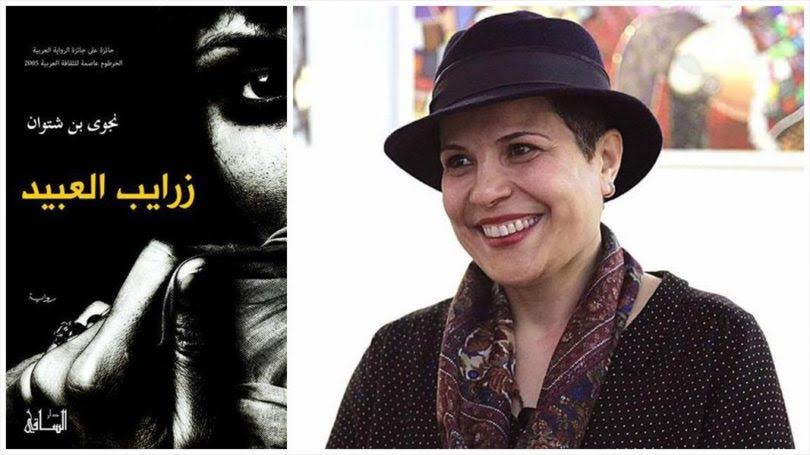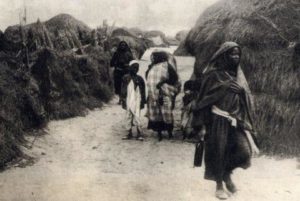Without a script but eager to be performing and entertaining for the very first time outside their home country, a group of six Libyan actors and a musician arrived in London last week to prepare and take part in the Greenwich-Docklands International Festival (GDIF). The biggest and longest established of its kind, the GDIF celebrates outdoor theatre and the performing arts and takes place at various venues across the Greenwich-Docklands area.
The unprecedented Libyan participation comes after the group was recently formed as a ‘Libyan Street Theatre Project’ through the great efforts of Muftah Ibrahim Elfagi and with the support and sponsorship by the British Council and the European Union. Elfagi is an actor and the Director of the National Theatre Tripoli since 2011 and has been awarded an MBE in 2009 for services to British-Libyan family reunification.
“Muftah is very much a fine performer, a wonderful character with a wicked sense of humour. He has already been entertaining and joking with people passing by in the Olympic park where we have been rehearsing. The others are also a great mix of personalities that creates an interesting chemistry and lively debate on which stories to use. Muftah has also invited us to Libya and we would love to go and continue our work there.” Damian Wright, Periplum
As a group they have performed only once before in Tripoli in a public park during March 2014 to a happily surprised crowd of up to 1,700 people in an act titled ‘Family Picnic’. This had been created with the British theatre director Nathan Curry, who later invited them to take part in the GDIF.
I met up with the positively energetic group at Cutty Sark, Greenwich and they all introduced themselves to me: Muftah Elfagi (age 60), Zahra Arafa (age 42), Hanan Espaga (age 20), Adel Abulefa (age 23) and Fuad R Gritli (age 28) Ahmed Elmusrati (age 17) and Saif Alwaine (age 17).
Elfagi said: “Acting is a spiritual medicine. Angels take me away and I lose my hurt, pains and sorrows and especially with my love feelings. Under the old regime, there was some censorship working at the National Theatre so we did social or historical plays and took part in Arab festivals in Cairo, Carthage and Damascus. But I am so glad to be here. As actors, we have to tell the truth and this is better after the revolution.”
For the GDIF Global Streets performance, the team have partnered with the innovative London-based performing arts production company Periplum, to work with Artistic Directors Damian Wright and Claire Raftery. The brief was to devise an original show for the Libyans within only a few days of planning and rehearsals that has to also be site-specific for the location at the Queen Elizabeth Olympic Park in Stratford.
I asked Wright how the Libyan team were responding to the challenge: He said: “So far the process has been intense and exciting and we have grown close to the Libyan group in the past few days. We have been showing them different techniques to make innovative street theatre performance and they have found it hard work, but hopefully this will inspire them when they go back to Libya to take on more ambitious projects.”
The anticipated trilingual show is scheduled to take place this week on the evenings of 25-26 June, 2014. I’ve been told it will not be a continual narrative but more of a composition of the spontaneous and challenging images and sounds inspired by the Libyans’ personal stories and feelings, and, also, being suggestive of the subjects that came up in their exchange with the Periplum team.
Wright: “Together we’ve created original text and original music to be played by the guitarist and drummer Fuad Gritli. He will be drumming on a piece of street furniture. There will also be a metaphorical line that begs the question of how do you make music from a broken instrument? And we do touch upon the subject of conflict, though there is optimism from the group as to Libya’s future despite the difficulties. It was also their preference to keep the work as universal as possible.”
Representing British Council Libya, Awatef Shawish, said: “Through the Libyan Street Theatre Project, a new form of artistic expression enters the Libyan art scene. It aims to raise the profile of street theatre in Libya by forging links with international experts to increase public access to the arts in Libya and provide the opportunity for young Libyan theatre students to work with well-established British outdoor theatre directors.”
As part of training during this short experience in London, the Libyan team have also attended up to thirty of the many incredible and amazing acts taking part at the GDIF. They were particularly impressed by the French company Rara Woulib’s ‘Deblozay: Dance with the Dead‘ and the Belarus Free Theatre’s ‘Red Forest’ at the Young Vic Theatre.
What they have discovered is the power of street theatre and how it can break the boundaries between actors and audience, as well as the use of humour that can be utilised in dramatic ways. Now they wish to take these insights back to Libya in order to further develop and invest in a new type of creative performance industry.
For more on the GDIF: https://festival.org/gdif/
Photos: Muftah Elfagi Image, GDIF Logo, Members Warming Up, Team Photo Before Last Rehearsal
Note: This article was fist published circa June 2014

